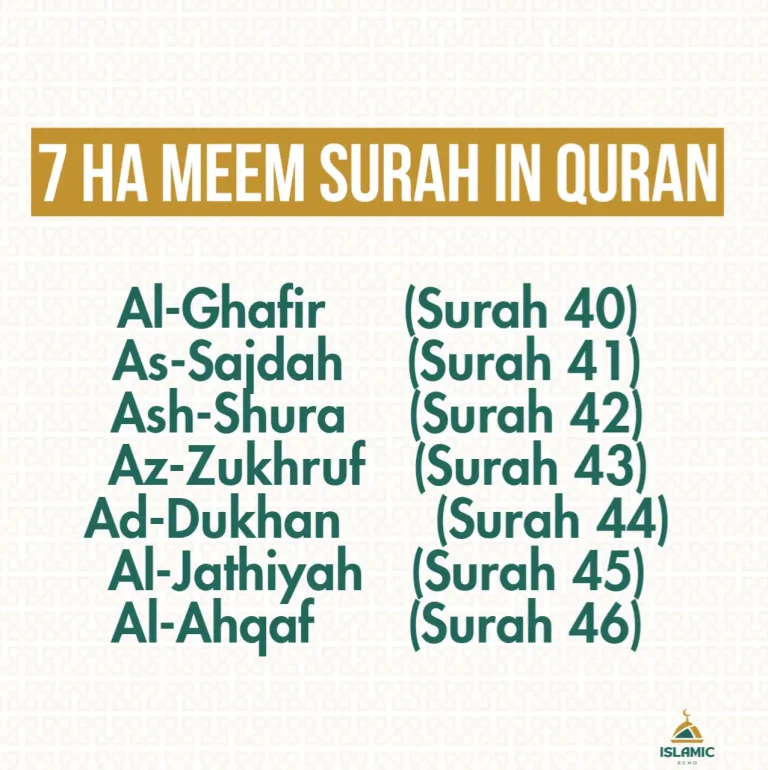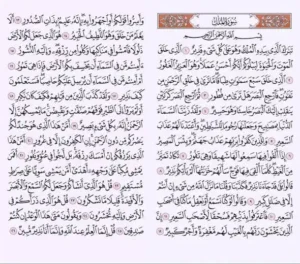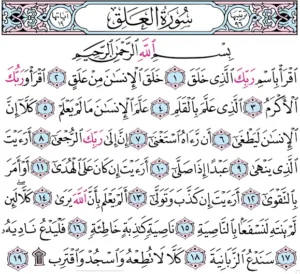7 Ha Meem Surah In Quran: Full List

In the Quran, there exists a unique group of seven Surahs known as the Ha Mim group, named for their shared characteristic of beginning with the Arabic letters “Ha” (ح) and “Mim” (م).
These Surahs are commonly referred to as the “Ha Mim” group or “Ha Meem” chapters, due to their distinctive opening letters. This group comprises seven specific Surahs, each starting with the “Ha Meem” combination, setting them apart from other chapters in the Quran.
7 Ha Meem Surah In Quran
The 7 ha meem surah are:
1. Surah Ghafir
Ghafir (Arabic: غافر, meaning: “The All-Forgiving”, referring to Allah) is the 40th chapter of the Qur’an, containing 85 verses (ayat). This surah is called al-Ghafir because of the Divine Name mentioned in verse 3.
2. Surah Fussilat
Fussilat (Arabic: فصلت, meaning: “are distinctly explained” or “explained in detail”), also known as Surat Ha Mim as-Sajdah (Arabic: سورة ﺣﻢ ﺍﻟﺴﺠﺪﺓ), is the 41st chapter of the Qur’an, with 54 verses (ayat).
3. Surah Ash-Shura
Ash-Shura (Arabic: الشورى, meaning: “Council, Consultation”) is the 42nd chapter of the Qur’an, comprising 53 verses (ayat). Its title derives from the concept of “Shura” (consultation) mentioned in verse 38. The term appears only once in the Quranic text.
4. Surah Az-Zukhruf
Az-Zukhruf (Arabic: الزخرف, meaning: “Ornaments of Gold, Luxury”) is the 43rd chapter of the Qur’an, containing 89 verses (ayat).
5. Surah Ad-Dukhan
Ad-Dukhan (Arabic: الدخان, meaning: “Smoke”) is the 44th chapter of the Qur’an, with 59 verses (ayat). The word dukhan, meaning ‘smoke’, is mentioned in verse 10.
The first verse is one of the Qur’an’s Muqatta’at, the letter combinations that appear at the beginning of some chapters. Verse 37 mentions the people of Tubba, which interpreters explain refers to the people of Sheba.
This surah is considered an earlier “Meccan surah,” believed to have been revealed in Mecca, rather than later in Medina.
6. Surah Al-Jathiya
Al-Jathiya (Arabic: الجاثية, meaning: “The Kneeling” or “Crouching”) is the 45th chapter of the Qur’an, comprising 37 verses (ayat).
It is a Meccan chapter, believed to have been revealed during the Meccan phase of Muhammad’s prophethood according to Islamic tradition.
This chapter is one of the seven in the Qur’an that begins with the Muqattaʿat letters Ha Mim. It discusses the “signs of God” for humankind to reflect upon and describes the punishments for those who deny God despite these signs.
Notably, it contains the only Quranic verse that mentions sharia, a term later used by Muslims to refer to Islamic law.
7. Surah Al-Ahqaf
Al-Ahqaf (Arabic: الأحقاف, meaning: “The Sand Dunes” or “The Winding Sand Tracts”) is the 46th chapter of the Qur’an, consisting of 35 verses (ayat).
This is the seventh and final chapter beginning with the Muqattaʿat letters Ha Mim.
It is considered one of the late Meccan chapters, except for verse 10 and possibly a few others, which Muslims believe were revealed in Medina.
Here is a table with information on the Surahs:
| Surah | Classification | Number of Verses | Revelation Order |
|---|---|---|---|
| Ghafir (40) | Meccan | 85 | 64 |
| As-Sajdah (41) | Meccan | 30 | 65 |
| Ash-Shura (42) | Meccan/Medinan | 53 | 66 |
| Az-Zukhruf (43) | Meccan | 89 | 67 |
| Ad-Dukhan (44) | Meccan | 59 | 68 |
| Al-Jathiyah (45) | Meccan | 37 | 69 |
| Al-Ahqaf (46) | Meccan | 35 | 70 |
Please note that the classification indicates whether the Surah was revealed in Mecca or Medina.
READ ALSO: Audhu Billahi Minashaitanir Rajeem Meaning and Arabic Text
IslamQA’s Stance on the Haa’-Meem Soorahs
IslamQA states that the letters at the beginning of some Surahs, including the Haa’-Meem group, highlight the Quran’s miraculous nature and inimitability.
However, there is no authentic Hadith specifically praising the virtues of the Haa’-Meem Surahs. Some Hadiths mention their virtue, but none have been proven sound.
A common practice of reciting the first two verses of each Haa’-Meem Surah consecutively has no basis in Islamic tradition and is considered an innovation to be rejected.
Additionally, there is no evidence to support the claim that this practice offers protection from Hellfire.
A weak Hadith narrated by al-Bayhaqi and ath-Tha’labi mentions the Prophet saying that each Haa’-Meem Surah will stand at a gate of Hell and intercede for those who believed in and recited it.
However, this Hadith has an interrupted chain of narration and is considered flimsy. Even if it were sound, it would imply reciting each Surah in its entirety, not just two verses.
In conclusion, IslamQA advises against innovating practices not grounded in authentic Islamic tradition.






